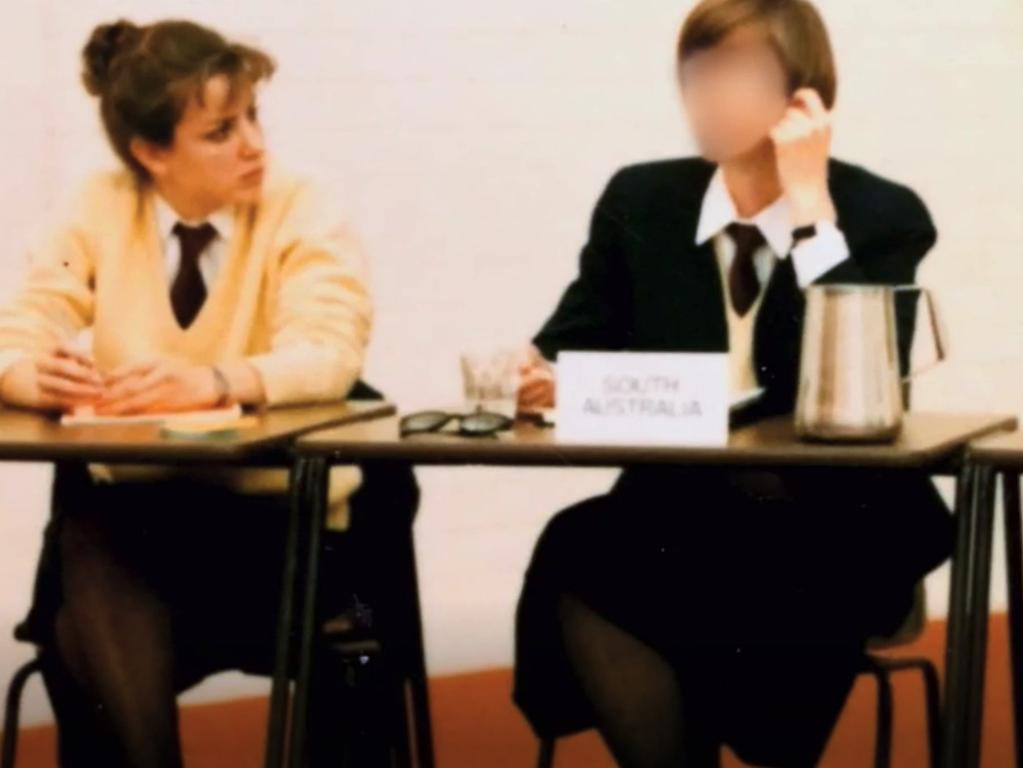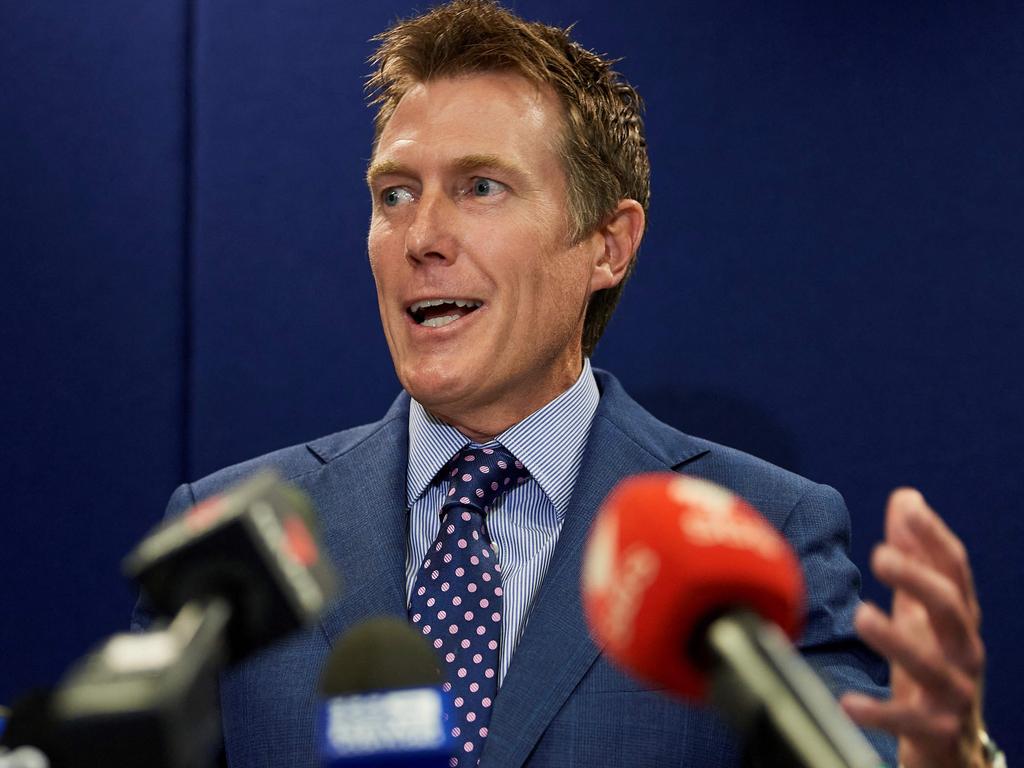Christian Porter review: NSW police commissioner will look at material
Police have made an important new pledge regarding the historical rape allegation against Attorney-General Christian Porter.
NSW police commissioner Mick Fuller has pledged to review the new material pertaining to the historical rape allegation against Attorney-General Christian Porter to assess whether it is enough to allow police to reopen the case.
While stopping short of promising that a fresh investigation is possible, the police chief told Parliament on Friday that he will now raise the matter through the chain of command.
News.com.au revealed on Friday that Macquarie Bank managing director James Hooke, a former boyfriend of the Adelaide woman, said he had relevant information about discussions he had with her from mid-1988 onwards.
“I’m more than happy to look into it. I know it’s a matter of Australian significance. I am not going to say here on the record that we’re reopening the case,’’ Commissioner Fuller said.
“I am more than happy to talk to Deputy Commissioner Hudson and through chain of command to ensure all information has been properly assessed in terms of arriving at the conclusion there’s not enough admissible evidence to go forward. But I won’t be saying today that we are reopening the investigation.”

RELATED: Ex-boyfriend of Porter’s accuser reveals new detail
In a statement detailing his contact with the woman in the 1980s and his conversations with Mr Porter in the early 1990s, Mr Hooke has also offered to co-operate with any inquiry.
Mr Porter has strenuously denied the allegations and insists the events described by the accuser never happened.
Mr Hooke does not detail in his statement exactly what the Adelaide woman, whose name has been withheld at the request of the family, told him in 1989. But it suggests the discussions came in stages.
He also claims that he had relevant discussions with Mr Porter about his relationship with the woman in 1992 in Perth and subsequently.
“I continue to be devastated by the untimely death of my very dear friend, and I am enormously concerned for the privacy and dignity of her family,’’ Mr Hooke said.
“I am also concerned for the wellbeing of Christian Porter. I have known all of them for approximately 30 years. We all find ourselves at a very upsetting time.

RELATED: Police never got letter outlining historic rape allegations
“Mine is just one set of recollections, and I am aware of the fallibility of human memory, however unintentional.
“That said, I have what I consider to be clear recollections of relevant discussions I had with her over the years from mid-1988 until her death.
“I also have what I consider to be clear recollections of relevant discussions I had with Christian Porter from April 1992 in Perth and through the mid-1990s.”
Mr Hooke, a trained lawyer, is a senior managing director with Macquarie Group. He is a former CEO of the $5 billion Macquarie-managed Australian Stock Exchange listed toll road company, Atlas Arteria.
He is also a former Chief Executive Officer of the Macquarie Infrastructure Corporation, based in New York, and served in various positions with Fairfax Media Limited (now part of Nine Entertainment Co.), Bain & Company management consultants, and Phillips Fox Solicitors.

Mr Hooke is the son of former NSW Liberal Treasurer Frank Hooke and the brother in law of former Liberal leader John Brogden.
His statement is particularly significant because it represents the first time any witness has come forward to allege that the woman had discussions about the alleged incident decades ago and follows media claims — rejected by her close friends — that her memories were “freshly minted” and may have been inspired by repressed memory theory.
Earlier, Commissioner Fuller also flagged potential legal reform the issue of consent noting it had been a real struggle for juries, judges and magistrates for years.
“It is a real issue that’s playing out today and this is before you even go to a historic matter, where there’s no forensic evidence and it is very much a 30-year-old statement being taken,” he told a budget estimates hearing on Friday.
“I think there needs to be a line drawn in the sand about what consent is, and I think there needs to be a better criminal definition around that.”

Under NSW law, consent is defined as a free and voluntary agreement, and there is a list of situations in which a person cannot consent.
As it stands, a person can be found not guilty of rape in NSW if they had an honest and genuine belief the victim was consenting, even if they weren’t — an issue that has played out in a string of high-profile cases.
“I hope that justice systems across Australia change to allow us to do more in this space, but the answer is, at the moment, the way the laws are constructed is that no it doesn’t unfortunately, as tragic as that is,” Commissioner Fuller said.
“Juries are finding it difficult to make a decision, we are having hung juries and that in a sense is the simplest issue, you have a current matter, current victim, you have recent evidence ... but this issue of consent is one that has struggles for juries, judges and magistrates, it’s a real issue that’s playing out today.”
NSW Police Minister David Elliott said the definition of consent was an issue that troubled him as a parent.

“As the father of two young teenage boys it is a matter of serious and daily discussion in our house,” Mr Elliott said.
“The first call from me as the police minister, but firstly as a father, is that parents need to teach their children respect for women … having had a loved one severely beaten by a partner it’s something that seriously sets me off. Parents, do your job.
“When I read some of these briefing notes coming through police channels that have been assaulted, it’s quite clear society has failed, and I’m delighted there’s a debate on consent.”
On Friday, NSW Police sensationally revealed the letter sent to the Prime Minister outlining historical rape allegations against Attorney-General Christian Porter was never sent to them before they closed the case.
The letter contained a warning from friends that further evidence was available to support the woman’s claims.
After the anonymous letter was sent to Scott Morrison he immediately referred it to the AFP and said it was a matter for police.
However, NSW Police have now revealed that while an email was sent, it did not contain any attachment.
For the first time, NSW Police have also flagged contact they had with the Adelaide woman’s sister after her death about the sexual assault allegations.
Between the day on which the complainant first spoke to NSW Police in February 2020 and the day she took her own life, there were 24 communications between the complainant and NSW Police — five SMS messages, eight emails and 11 calls or attempted calls.




